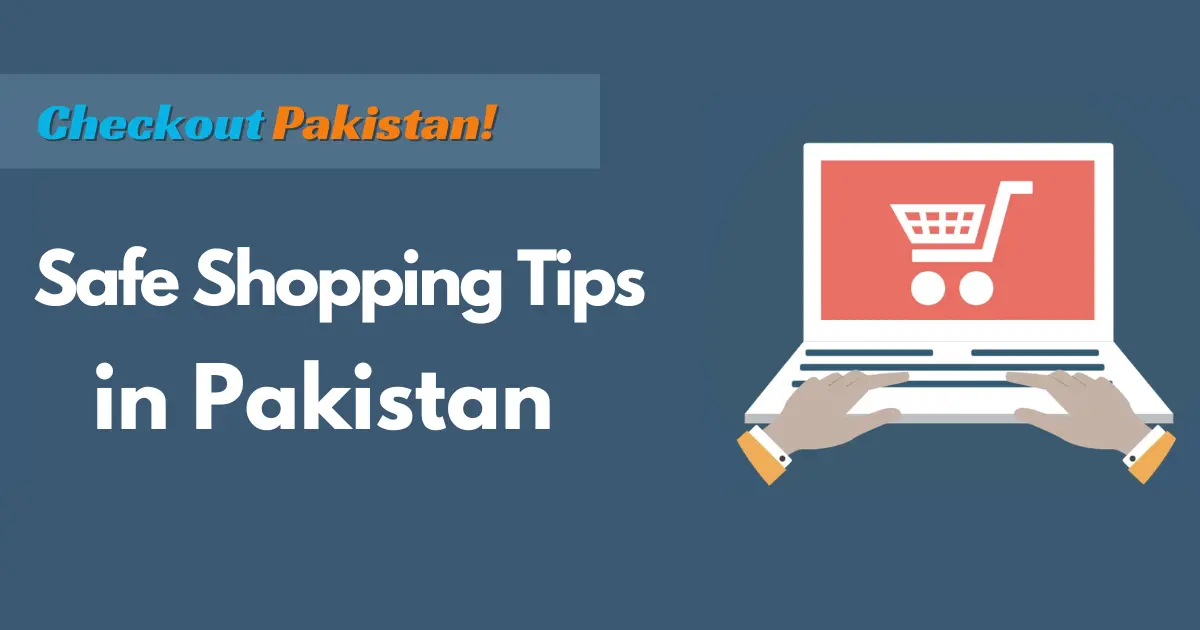In the digital age, prioritize “Safe Shopping in Pakistan” to guard against e-commerce frauds and ensure a secure online shopping experience. This article provides comprehensive information on protecting yourself while enjoying the convenience and popularity of online shopping.
Online shopping brings unparalleled convenience but also exposes consumers to potential e-commerce frauds. As online retail expands exponentially in Pakistan, shoppers must educate themselves about prevalent scams and adopt savvy precautions to avoid financial or data theft. Explore the evolution of e-commerce in Pakistan to stay informed about the latest trends and opportunities in the market. This article outlines common online shopping fraud typologies, red flags, and fail-safe tips for consumers to shop securely.
Understanding E-commerce Fraud
E-commerce fraud is a form of cybercrime that occurs with online customer transactions. Fraudsters deceive businesses and customers to gain unauthorized access to personal and financial information, conduct fraudulent transactions, or exploit the online retail environment for their own gain. The most common types of e-commerce fraud include classic online credit card fraud, card testing fraud, chargeback fraud, and account takeover fraud.
Common E-commerce Scams in Pakistan
Pakistani online shoppers frequently encounter these cybercrime typologies designed to steal money or personal information:
Phishing Websites
Fraudsters create fake e-commerce websites resembling genuine online stores to dupe buyers into entering payment card or account login details that are then misused.
Social Engineering Tactics
Scammers contact shoppers via email/SMS with irresistible deals to lure them to malicious websites or extract sensitive information through psychological manipulation.
Payment/Identity Theft
Stolen payment card data from previous breaches is used to make unauthorized purchases from online shops. Account credentials also remain at risk of theft using keyloggers or malware.
Red Flags to Watch Out For
Consumers should watch out for these suspicious activities when shopping online:
- Website URLs with misspellings of brand names
- Abnormally low prices for premium products
- Requests for unusual payment methods like wire transfers or gift cards
- Calls/messages asking for personal/banking details
- Credit card charges for purchases you didn’t make

Tips for Safe Shopping in Pakistan
- Shop with reputable retailers: Stick to well-known online retailers to avoid scams. If you come across deals from unfamiliar retailers, research the companies before making purchases.
- Secure Connection: Always place orders from a secure connection. If your computer isn’t protected from potentially malicious software, your financial information and passwords are at risk.
- Secure Websites: Make sure the website you’re on has “https” at the beginning of the URL. The “s” stands for “secure” and means that your information is encrypted before it’s transmitted.
- Payment Method: Credit cards are the most secure and safe payment method to use when you shop online. They use online security features like encryption and fraud monitoring to keep your accounts safe. Learn more about payment gateways in our ecommerce guide for Pakistan.
- Avoid Public Wi-Fi: Avoid making any financial transactions when using a public network, as you may not know if it’s compromised.
- Strong Passwords: Always use difficult-to-guess, unique passwords on every account.
- Beware of Amazing Deals: If a deal seems too good to be true, it probably is. Scammers often list popular items at discount prices to lure in customers.
- Research the Seller: Before buying, research the seller. Check for reviews or complaints about the seller or their products.
- Use a Reliable Internet Security Program: The best way to stay safe online is by using an effective internet security product.
- Guard Your Personal Information: Be cautious about how much personal information you provide on shopping websites. Fill out only the necessary information.
Congratulations! You’ve now armed yourself with essential tips to navigate the online shopping landscape in Pakistan. Remember, a secure and enjoyable shopping experience is just a click away. For a deeper dive into comprehensive online shopping tips, explore our detailed guide: ‘The Ultimate Guide to Online Shopping Tips in Pakistan.’ It’s your go-to resource for mastering the art of safe and savvy online shopping.
Conclusion
Online shopping is a convenient way to purchase goods and services, but it also comes with risks. By following these tips, you can protect yourself from e-commerce frauds and enjoy a safe online shopping experience.
